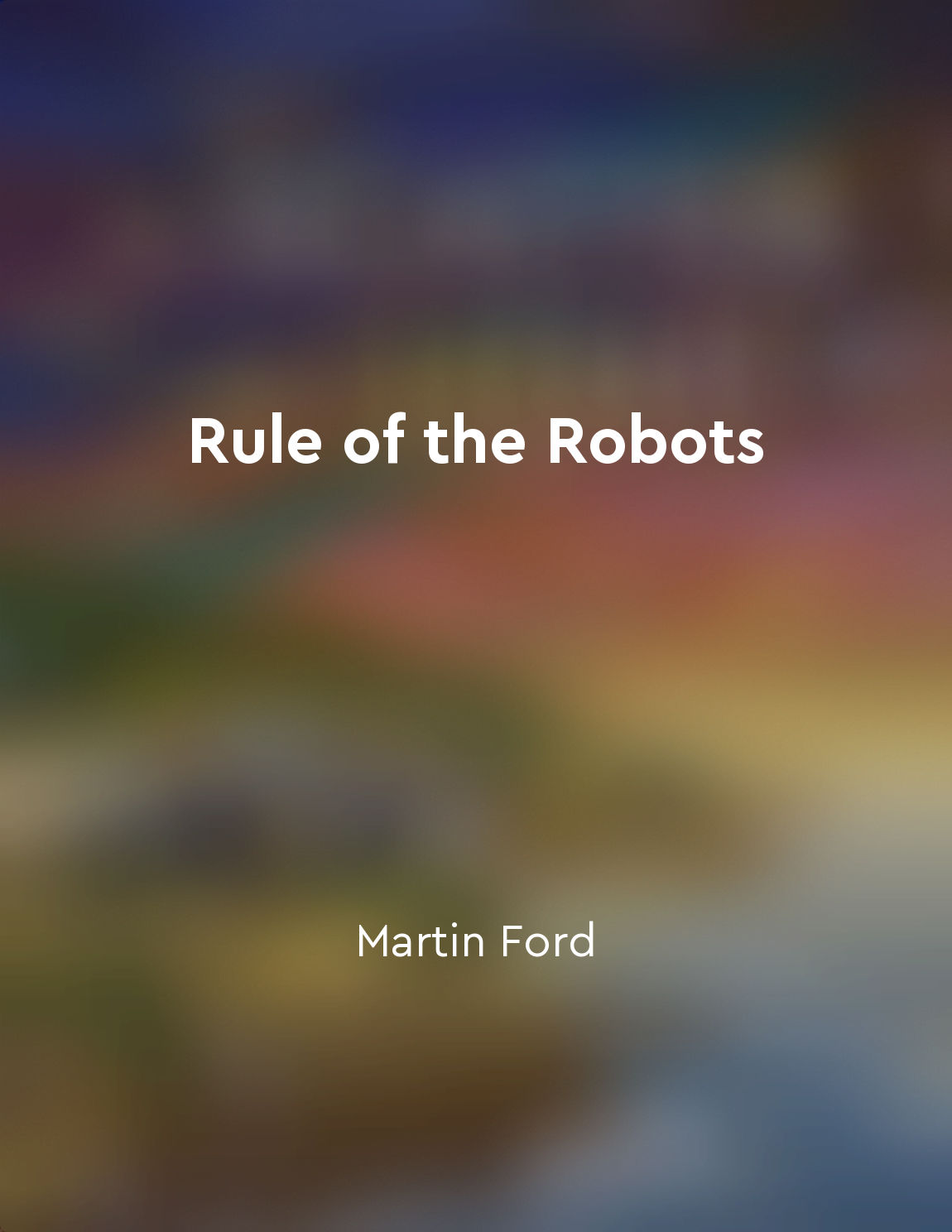Businesses must balance the benefits of automation with the impact on workers from "summary" of Rule of the Robots by Martin Ford
In today's rapidly evolving technological landscape, businesses are increasingly turning to automation to drive efficiency and productivity. While automation undoubtedly offers a myriad of benefits, such as improved accuracy, speed, and cost savings, it also raises significant concerns about its impact on workers. The need to strike a delicate balance between harnessing the advantages of automation and mitigating its potentially disruptive effects on the workforce has become a pressing challenge for organizations across industries. As automation continues to permeate various sectors, from manufacturing and logistics to customer service and healthcare, the potential repercussions on employment are becoming more pronounced. The fear of job displacement due to automation-induced redundancies looms large, casting a shadow of uncertainty over the future of work for many employees. While automation has the capacity to streamline operations and enhance competitiveness, its widespread adoption could lead to significant job losses and exacerbate socio-economic disparities. Moreover, the rise of automation poses a fundamental question about the nature of work itself and the role of humans in an increasingly automated world. As machines and algorithms take on more tasks traditionally performed by humans, the value of human labor and skills is being called into question. The fear of being rendered obsolete by automation is a legitimate concern for many workers, particularly those in routine or low-skilled jobs that are most susceptible to automation. In grappling with the implications of automation on the workforce, businesses must be cognizant of the broader social and ethical considerations at play. The ethical implications of automation, such as the erosion of job security, the concentration of wealth in the hands of a few tech giants, and the dehumanization of work, demand careful scrutiny and reflection. As businesses navigate the complex terrain of technological disruption, they must prioritize ethical decision-making and social responsibility to ensure a fair and equitable transition to an automated future.- The imperative for businesses to balance the benefits of automation with the impact on workers underscores the need for a holistic approach to technological innovation. By embracing automation thoughtfully and responsibly, businesses can harness its transformative potential while safeguarding the well-being and livelihoods of their employees. The pursuit of a harmonious coexistence between humans and robots lies at the heart of the evolving relationship between technology and work, challenging businesses to reevaluate their practices and priorities in the face of unprecedented change.


